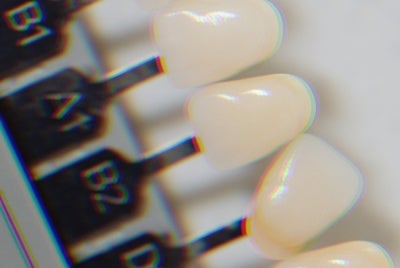Why napping isn't laziness, it's a biological necessity
Napping is not just a habit but a natural part of human biology.

NAPPING is a simple activity that is favoured by many. However, nap skeptics argue that daytime naps cause sluggishness or signal laziness, especially in fast-paced work cultures.
Neurologists argue that human beings are biologically wired for biphasic sleep instead of monophasic sleep which consists of one long sleep at night and a short nap during the day. Sunway Medical Centre Neurologist Dr Mohamad Imran Idris explains that napping is not just a habit but a natural part of human biology.
He said that human beings are not designed for monophasic sleep, where people only sleep for seven to nine hours at night.
"We are wired for biphasic sleep, where a short nap during the day complements our main sleep cycle," he said.

WHY YOU SHOULD CONSIDER NAPPING
Napping has been proven to naturally help in regulating mood, and improving thinking capabilities and overall health.
According to Dr Imran, studies have shown that a brief nap of 20 to 30 minutes could significantly improve mental clarity, memory retention and alertness.
"The best time for a nap is between 1 and 4pm, as this aligns with the body's natural dip in alertness due to fluctuations in body temperature. Many people mistake this drop for postprandial (post-lunch) drowsiness, but even if you skip lunch, your body will still experience this decline in energy levels," he said.
THE IDEAL NAP DURATION
One of the main concerns surrounding naps is the potential for grogginess upon waking, also known as sleep inertia.
Dr Imran clarifies that this happens when a person moves from light sleep into deep sleep and is abruptly awakened.
"If you nap for too long and enter deep sleep, waking up can leave you feeling disoriented, moody, and sluggish. That’s why an optimal nap should be kept between 20 to 30 minutes to avoid entering deeper sleep stages," he said.
Studies using electroencephalography (EEG), which measures the brain’s electrical activity, have explored how napping affects brain function.
Dr Imran explained that sleep is not simply an on-off switch but a cycle of stages.
"We have non-REM (Rapid Eye Movement) sleep and REM sleep, each marked by different brain activities.
"During a short nap, the brain cycles through these stages, but ideally, it should remain in lighter sleep phases to maximise its benefits," he said.
NAPPING AT WORK: PRODUCTIVITY BOOST OR CAREER KILLER?
Despite the scientific backing, napping is still being culturally frowned upon, particularly in corporate environments where it is often associated with laziness.
Dr Imran said that corporations, despite claiming to be data-driven, often overlook strong evidence showing that napping is beneficial.
Workplaces that encourage power naps have reported increased employee performance and satisfaction.
"In some cultures, short naps have been normalised, and they see better productivity levels. If more companies adopted nap-friendly policies, they would likely see a positive impact on employees' efficiency and well-being," the neurologist said.
NAPPING THE RIGHT WAY
While napping has clear benefits, it is essential to do it correctly and embrace its ability to improve your life while adopting biphasic sleep.
The key takeaways from Dr Imran’s insights are:
- A short nap done in 20 to 30 minutes can improve thinking capabilities and alertness.
- The ideal nap window is between 1 to 4pm due to the biological body’s natural dip in energy levels.
- Naps should not be done in a way that is long enough to enter deep sleep to avoid grogginess.
- Even without eating, the body naturally experiences reduced alertness, typically in the early afternoon.
- Workplaces see naps as a performance-enhancing tool rather than laziness-inducing.
So the next time you feel that mid-afternoon slump, consider taking a nap—it might be exactly the lost puzzle piece to an improved life by providing what your brain and body need.
Download Sinar Daily application.Click Here!















